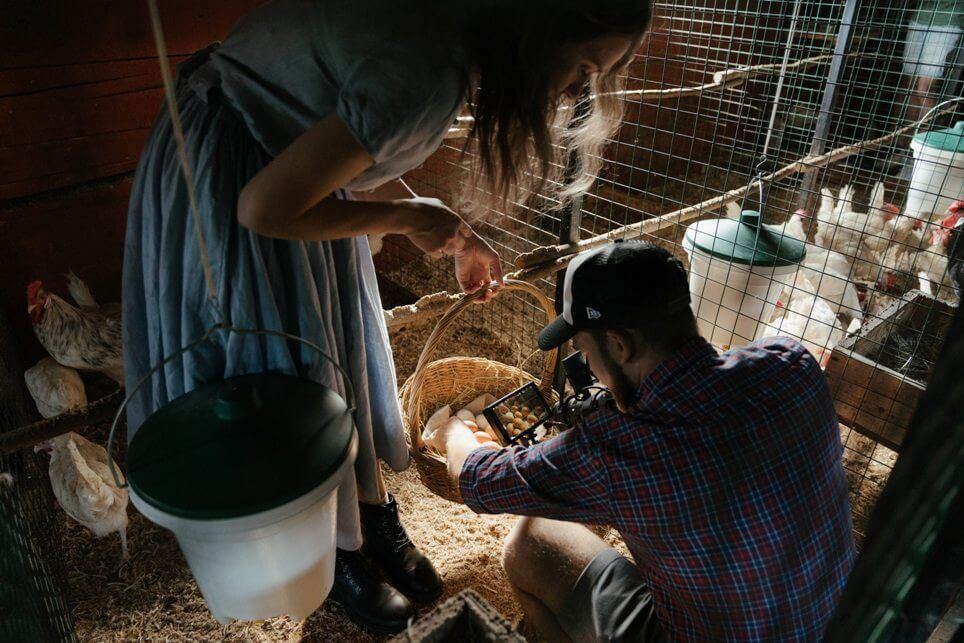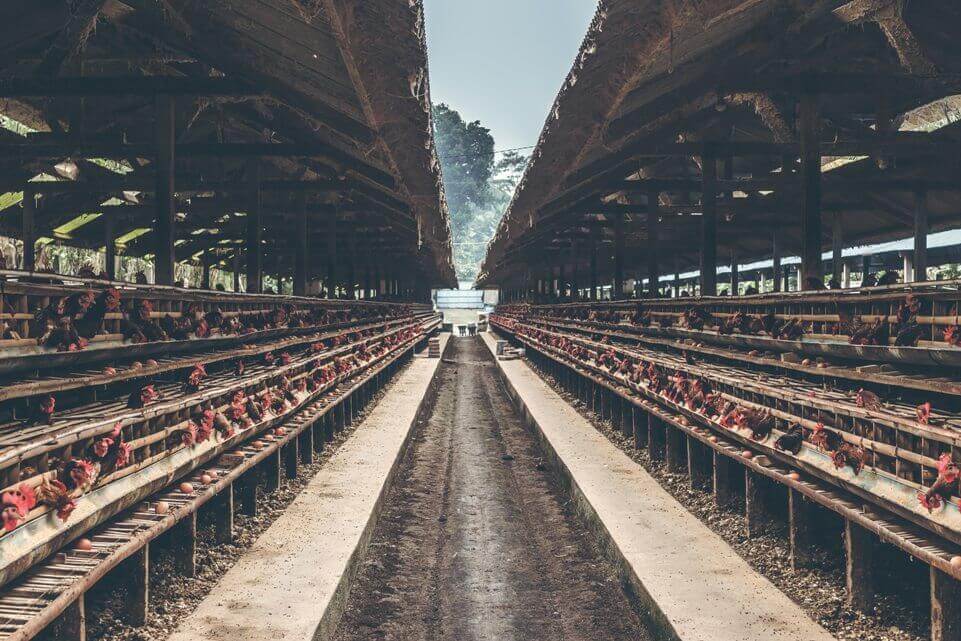Imagine your day starting with the sound of roosters at the break of dawn every morning. Imagine witnessing the sunrise each day, sometimes waking up to the pitter-patter of rain, looking outside, and being greeted by an expanse of greenery. Ducks quacking, hens clucking, birds chirping. What a fantastic start to a day that sounds. And that is precisely how it would be if you start a poultry farming business of your own.
Farm businesses are increasing in number by the day due to the increasing demand for poultry products. If you have been thinking of starting a poultry farm, this article will walk you through it, step by step.
What Is Poultry Farming?
Before even beginning to make a plan about how to start your farm, you should know what exactly poultry means.
In straightforward terms, poultry is small domesticated birds raised and bred for their meat and eggs. Not all birds are considered poultry. Chicken, geese, turkey, and duck, all fall within the gamut of poultry. Some countries raise and domesticate Guinea fowls, squabs, and pigeons as a sideline for gourmet dishes, but they cannot be classified as poultry since they are more appropriately game birds. People domesticate both poultry and game birds for their meat, eggs, and sometimes feathers.
Ask yourself the exact reasons why you want to start a poultry farming business
Being aware of the reasons behind your desire to start a poultry farm would help you draw more accurate plans to fit your idea of what you want. Your requirements will depend on whether you wish to start a poultry farm for business and profit, animal welfare, or maybe just a hobby that keeps you occupied and busy.
The blueprint for your farm will wholly depend on your answers; therefore, you must be aware of why you would like to start and own a farm for poultry.
Get your hands dirty!

Daydreaming about owning a farm is fun and games until you begin to think about it in terms of setting one up. Farm work is not as easy as it may seem. It requires hard work, dedication, strength, and perseverance. You will be working with live creatures who will need your time and attention.
It would help if you went and worked on a farm for a few weeks or months, to get a feel of what it is like in the field. This would serve as a vast learning experience for you because it would allow you to observe how a farm functions, and it would give you hands-on training on what you will need to do when you set up your farm. Look at this time as research, and you will come out of it with more knowledge than you could ever expect!
1. Make a Decision about What Kind of Poultry You Want to Rear
Whether it is chicken, ducks, or geese – The kind of poultry you have in mind for your farm will make a difference to the strategies you will need to adapt. For example, ducks and hens might not seem to be all that different, considering both are reared for their meat and eggs. But the process of rearing differs.
Ducks are generally quieter, lay eggs on a more regular basis, are less aggressive to newcomers, and will not turn your grassy patches into fallow land. Hens would require a different kind of system that will support their growth, as opposed to ducks. And the same goes for the other kinds of poultry too.
Each kind of poultry will require a different kind of facility and will generate different rates of profit. Therefore, it would be best to weigh all the characteristics of every poultry before you start to think about the kind of land or finance you will need.
2. Research the Details
Once you decide what kind of poultry you would like to rear, the next step is to learn about the species as much as you can.
The most typical species are Galliformes (land fowl such as chickens and turkeys), and Anseriformes (waterfowl such as ducks and geese). The kind of land you will buy depends on the kind of fowl you intend to have on your farm. Also, the feed that you will need to provide, and the environment that you will need to prepare, are issues you will have to streamline according to the kind of fowl you choose.
3. Availability of Human Resources and Expertise

If you plan a small start-up intended only for enjoyment, you won’t need much assistance with maintaining the farm.
However, if you have plans to grow your poultry farm, you will require expert advice and human resources to help you drive your business. Poultry farming is a science that needs to follow specific guidelines. It isn’t the same as keeping one or two chickens that will run around your lawn. A farm demands knowledge, skills, and people to keep it moving.
4. Look for a Piece of Land That Is Right for You
If you already own a piece of land that you would like to convert to a poultry farm, your work will start with deciding what kind of poultry you would like to rear.
If you do not already own any land but would like to set up a poultry farm, you have the world at your feet. You will have the freedom to search for a piece of land that caters to your needs accordingly. You could make a list of the factors that you think would have an impact on your poultry farm.
- How far is the nearest market?
- Will your neighbors be welcoming of a farm next to their property?
- Are there any businesses close by that you think might like to link up with you?
- What kind of soil does it have?
- Does it have adequate access to water?
- Is it the correct size for the plans that you have?
- Is there a possibility of competition in the area?
Apart from these questions that you will need to ask yourself, you could think of other factors that will be most appropriate to the kind of poultry farm you intend to set up.
Should you buy or lease?

After you find a piece of land most suited to the farm that you want, the next decision you will need to make is whether you would like to buy the land or lease it.
This decision will depend on how much control you’d like to have over your farm, and how much of a risk you are willing to take. Owning land entails much more freedom in terms of what you can do with it, but leasing land means lesser financial risk. The decision is ultimately up to you.
5. Draw a Clear Business Plan
Even if you do not intend to start a poultry farm for making a profit, writing a business plan for any start-up is always wise. It helps keep finances in order.
Your business plan should display your plans in terms of description, expansion, growth, revenue generation, objectives, location, and facilities. Document your ideas. Organize and prioritize as much as possible to help the process run smoothly.
6. What about Finance?
Questions about finance will go hand in hand with your decisions about the land that you buy and the kind of poultry you’d like to rear.
If you have inherited land and would like to start a poultry farm on it, your financial questions will start with those relating to infrastructure.
If you have inherited an already up-and-running farm, you will only need to worry about improving its facilities.
In case, you are at square one and own no land, you are not alone. Getting funded by external investors is one way of getting financed, but banks will not unquestioningly hand a loan to you. They will require collateral. You will need to put your assets at risk, as a price for turning your dreams into reality. You will need to be ready with answers to questions they will ask about your start-up plans. Only when they see your business plan as a minimal risk will they be willing to sign over a loan to you?
Another way to go is to fund yourself, commonly referred to as Bootstrapping. It is a term that was frequently used in the nineteenth century, meaning to “pull up by one’s bootstraps.” Bootstrapping means that you resource your funds from your savings, without any external financial aid. It is not the easiest of options because you will bear all the losses as an individual if the start-up does not succeed as expected. It could also be the most rewarding option if the start-up is as successful as hoped. Bootstrapping also means that you will have complete control over your assets.
According to studies quoted by Investopedia, about 80% of start-ups are financed by personal savings.
7. Place Yourself in the Market

Identify your targets and put yourself out there. Before you start to look into marketing strategies, start by looking for nearby sources that can double up as consumers and helping hands. Word of mouth is still one of the best ways to create a buzz about a product, especially if you are low on funds.
Look into farmer’s markets and local food stores that might be willing to partner up with you. You could also sell your poultry products on your property.
Get involved in Poultry CSA (Community Supported Agriculture). It is a beautiful system that will ensure a continuing relationship with the consumer, so make sure your products are worth the subscription! It will work wonders for you because you will receive payment in advance, and the buyer has ensured a regular and steady flow of products from your farm to them.
Conclusion
To translate your dreams of starting a poultry farm into a solid practical reality, you will need to completely give yourself to it. Whether it is resources, funds, workforce, or attention- your poultry will require all of it. Research, learn, and talk to people involved in similar fields, so you gain as much insight as possible. If you are willing to do that, your farm will blossom in no time.
The Quickest Way to turn a Business Idea into a Business Plan
Fill-in-the-blanks, AI-assistance, and automatic financials make it easy.



